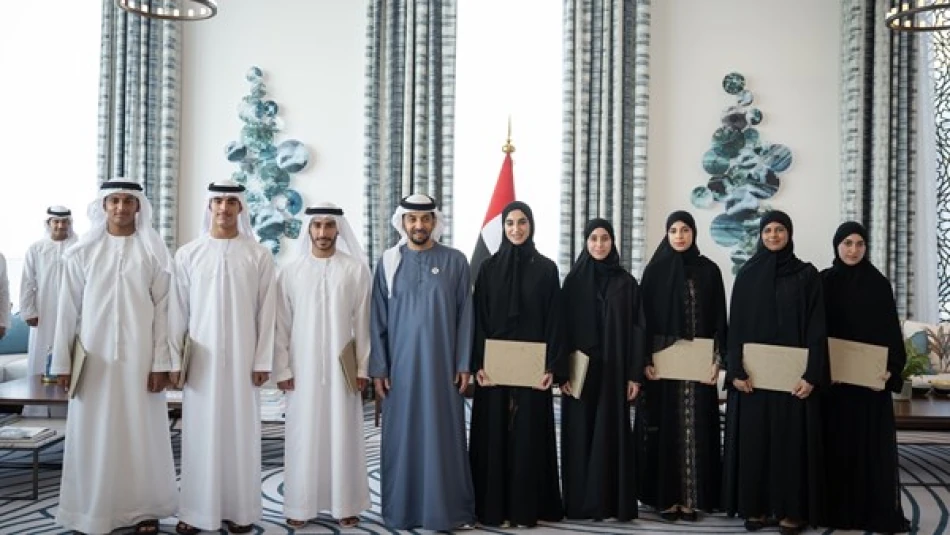
Ruler Welcomes Top High School Achievers in Dhafra Region
UAE Leadership Doubles Down on Education Excellence as Regional Competition for Talent Intensifies
Sheikh Hamdan bin Zayed Al Nahyan's personal reception of top-performing Grade 12 students in Al Dhafra region signals the UAE's continued emphasis on nurturing homegrown talent amid fierce regional competition for skilled professionals. The high-level recognition underscores how Gulf states are prioritizing educational excellence to reduce dependence on foreign expertise and build knowledge-based economies.
Strategic Investment in Human Capital
During the ceremony at Al Dhanna Palace, Sheikh Hamdan emphasized that education forms the cornerstone of the UAE's progress trajectory, backed by President Sheikh Mohammed bin Zayed Al Nahyan's unwavering support. This top-down commitment reflects a broader Gulf trend where leadership directly engages with educational outcomes rather than delegating to bureaucratic channels.
The Sheikh's message was clear: these students represent the future workforce that will drive the nation's comprehensive development. His call for graduates to pursue scientific specializations aligned with current and future labor market needs particularly resonates in Al Dhafra region, which offers diverse opportunities across multiple sectors including energy, technology, and logistics.
Family-Centric Educational Philosophy
Sheikh Hamdan's acknowledgment of parents' role highlights the UAE's recognition that educational success requires collaborative effort between state institutions and family structures. This approach contrasts with purely institutional educational models and reflects cultural values that prioritize family involvement in academic achievement.
The emphasis on parental engagement also addresses a practical challenge facing rapidly developing economies: ensuring that traditional support systems adapt to modern educational demands while maintaining cultural continuity.
Regional Context and Competition
The UAE's focus on educational excellence comes as Gulf states intensify competition for regional talent hubs. While Saudi Arabia launches massive educational initiatives under Vision 2030, and Qatar continues leveraging its Education City model, the UAE's approach emphasizes direct leadership engagement with student achievement.
This personal touch from senior royals sends a powerful message to both students and international observers about national priorities. Unlike purely policy-driven initiatives, such high-level recognition creates aspirational models that can influence career choices and academic focus areas.
Economic Implications for Workforce Development
The strategic push for students to pursue specializations matching labor market needs reflects the UAE's transition from resource-dependent to knowledge-based economic models. Al Dhafra region, with its strategic location and diverse industrial base, serves as a testing ground for this workforce development approach.
For investors and businesses operating in the region, this educational focus suggests a pipeline of locally-trained professionals who understand both international standards and regional market dynamics. This could reduce recruitment costs and improve employee retention compared to relying heavily on expatriate expertise.
The students and parents expressed gratitude for the leadership's continued support, acknowledging that such recognition serves as motivation for sustained academic excellence. The presence of senior officials, including Nasser Mohammed Al Mansoori, Undersecretary of the Representative of the Ruler's Court in Al Dhafra Region, demonstrated institutional commitment to educational priorities at multiple governance levels.
Most Viewed News

 Layla Al Mansoori
Layla Al Mansoori






